
Born: 2000 Cause: Mental Health and Suicide Prevention
The whole experience of passing the bill, it makes you realize you can change things. You don’t have to have special connections. You just have to speak up and be passionate. —Hailey Hardcastle
Between climate change, school shootings, politics, and bullying (not to mention soaring college costs and the pressure of extracurriculars), students today clearly have a lot more on their minds than schoolwork. If you ever find yourself feeling overwhelmed, anxious, or depressed by any of it, know that you’re not alone.
Mental health advocate Hailey Hardcastle has been there herself, and she knows the importance of having a good support system in place. When all of that pressure led to a panic attack during school, her mom didn’t think twice before pulling her out with a fake excuse about a doctor’s appointment. And after a day of rest, Hailey felt great.

You might be asking yourself, “Why did Hailey’s mom have to lie?” Hailey asked herself the same question, and it’s what led to her changing how the school systems in Oregon treat mental health. In June of 2019, Oregon Governor Kate Brown signed into a law a bill requiring mental health days for students. Hailey not only advocated for that bill, she helped write it. And it’s one of the first state laws ever to treat mental health and physical health equally.
Hailey knew that she wanted to do something, but it wasn’t until she heard Parkland survivor David Hogg speak about student activism at the Oregon Association of Student Councils summer camp that she and other campers realized they could do something.
During workshops on student life and mental health, they started talking about the need for designated mental health days. Hailey joined with fellow students Sam Adamson, Lori Riddle, and Derek Evans, plus pro bono lobbyists, to draft the language for House Bill 2191. “We were inspired by Parkland in the sense that it showed us that young people can totally change the political conversation,” Hailey says. “Just like those movements, this bill is something completely coming from the youth.”
In addition to helping write the bill, Hailey and others had to advocate for it at the state capitol. In her testimony there, Hailey said, “House Bill 2191 is important to me because it would reaffirm the idea that mental illness is no different than physical illness, and it would offer support to the masses of students that are struggling with mental health challenges every day.”
Although Hailey received a lot of support for her bill, there were plenty of naysayers. Some said the policy would give kids an excuse to skip school. Others said the legislation wasn’t necessary because kids could already take time off for mental health—they just had to lie or pretend to be sick. But Hailey helped them understand how dangerous those lies could be. “Why should we encourage lying to our parents and teachers?” she said. “Being open to adults about our mental health promotes positive dialogue that could help kids get the help they need.” Teaching kids to be ashamed of their mental health issues could have deadly consequences.
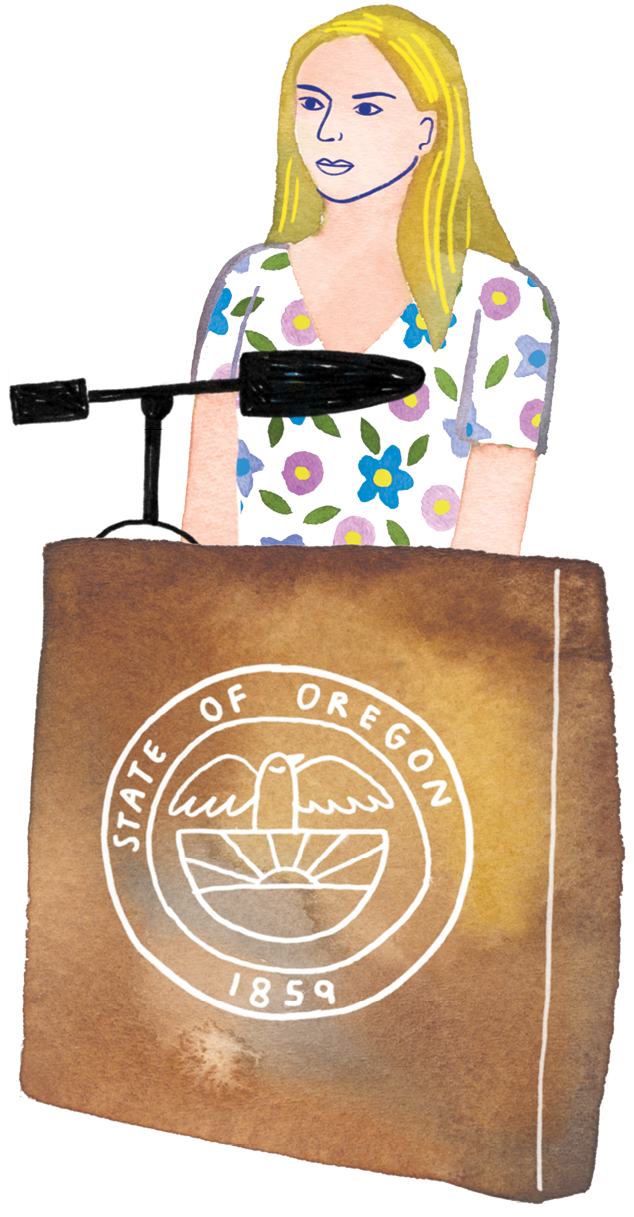 At least two Oregon parents agree, saying that Hailey’s law might have saved their daughter. Jason and Roxanne Wilson’s 14-year-old daughter Chloe took her own life in 2018 after being bullied for coming out as bisexual. When things were rough at school, she would pretend to be sick to stay home. “Because she lied to get her absences excused,” explained Roxanne, “we didn’t get to have those mental health conversations that could have saved her life.” Chloe was one of five teens near her hometown of Eugene, Oregon, to commit suicide that month alone.
At least two Oregon parents agree, saying that Hailey’s law might have saved their daughter. Jason and Roxanne Wilson’s 14-year-old daughter Chloe took her own life in 2018 after being bullied for coming out as bisexual. When things were rough at school, she would pretend to be sick to stay home. “Because she lied to get her absences excused,” explained Roxanne, “we didn’t get to have those mental health conversations that could have saved her life.” Chloe was one of five teens near her hometown of Eugene, Oregon, to commit suicide that month alone.
In fact, suicide is the second-leading cause of death for young people. And in Oregon specifically, the suicide rate is 33 percent higher than the national average. For Hailey, that’s all the more reason for legislation that takes mental health seriously. She hopes that her bill will “help identify the students who are already missing school for mental health reasons” so that parents and teachers will be aware of the issue and can offer help.
House Bill 2191 wasn’t the only legislation that Hailey hoped to see pass. She had also pushed for schools to offer mental health checks alongside the eye exams that start in elementary school. The bill didn’t pass the first time around, but Hailey’s not giving up. She knows that mental health checks can save lives. In the meantime, she and her fellow activists are helping other states lay the groundwork for mental health days. They hope to see the initiative go nationwide.

Follow Her Fight: #mentalhealth and #suicideprevention on Twitter

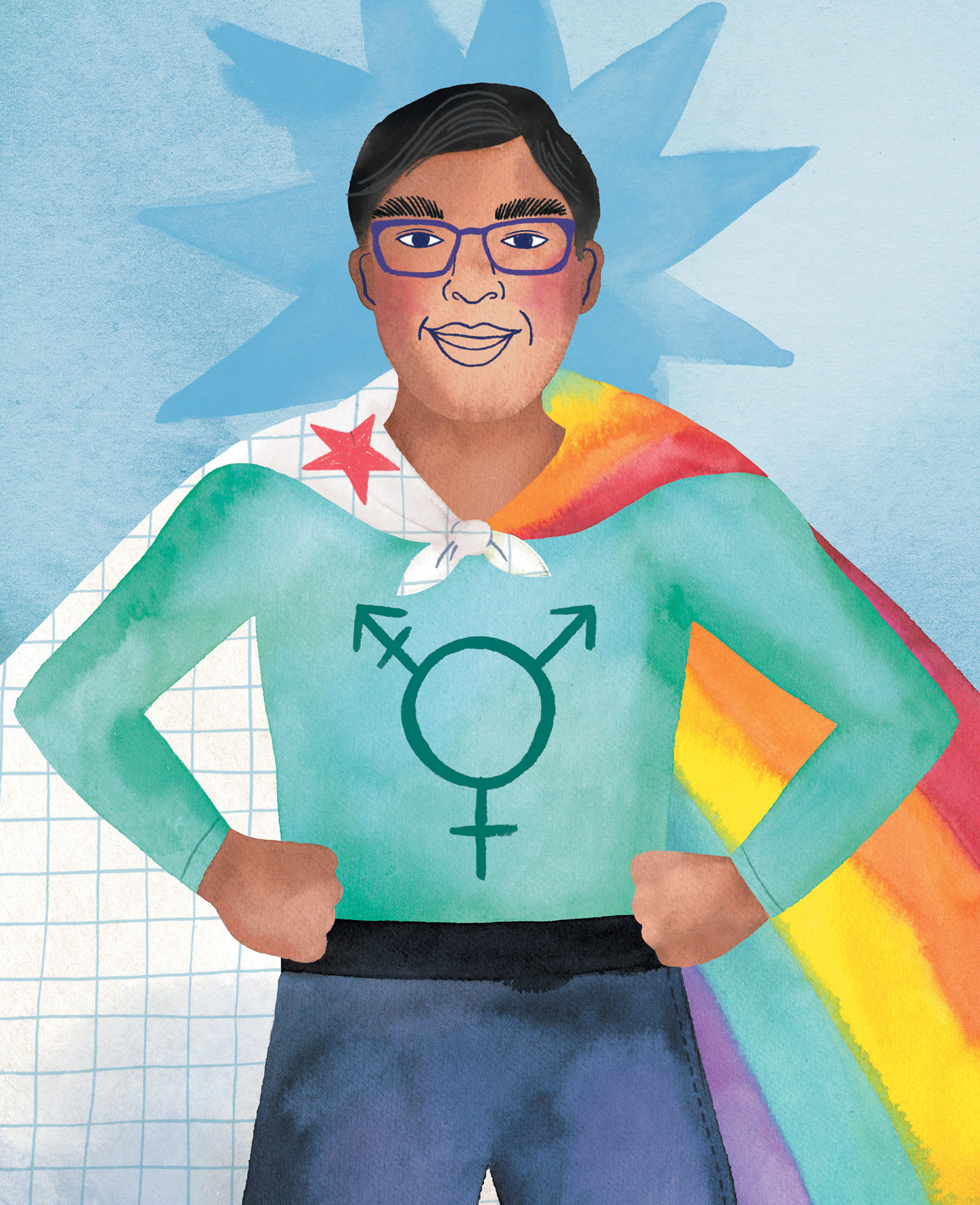
Born: 2000 Cause: Education and Anti-Bullying Initiatives on LGBTQ+ Issues

Don’t be a bystander. Whatever problem you see, whatever issue you are passionate about, take a stand and do something about it. —Sameer Jha
Wherever you are in school, you can probably name a favorite teacher or counselor. Did they make math easy or brighten your days? Were they your sounding board when you were going through a tough time? When you spend most of your time at school, a good teacher can make all the difference. Without that support, LGBTQ+ advocate Sameer Jha might never have had the courage to be themself. And now they’re paying that kindness forward by educating educators in LGBTQ+ issues and helping them become allies for their students.
Sameer started school as a little boy who loved pink and Disney princesses, in an educational environment that was overwhelmingly homophobic. By middle school, Sameer was used to being bullied. “I always felt like I was doing something wrong. Like I needed to hide who I really was. Like I should be ashamed, which I was,” they say. But a counselor’s simple suggestion to look into an independent high school changed everything.
At their new school, Sameer discovered their first Gay-Straight Alliance (GSA) club, met openly LGBTQ+ faculty members, and learned about gender fluidity from new friends. This newly supportive community gave them the courage to come out as queer and nonbinary—identifying as neither male nor female and adopting the pronouns they, them, and their—at age 14. Realizing what a difference that supportive environment made, Sameer founded The Empathy Alliance (www.theempathyalliance.org) to make other schools safer and more inclusive for LGBTQ+ students. And what better place to begin than Sameer’s middle school?
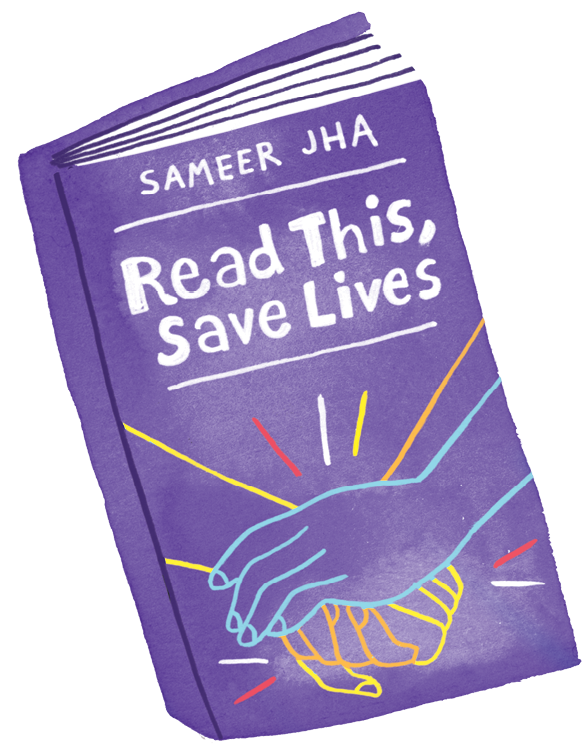 With the help of faculty and staff, Sameer started the school’s first GSA, helped provide LGBTQ+ friendly books for the library, and held school meetings about bullying prevention. Their message of love and empathy quickly spread to the entire school district, where they helped secure an inclusive health-education curriculum for fourth grade and up. That initiative ensured that 35,000 students in 43 schools received education on LGBTQ+ identities. Today, The Empathy Alliance has reached over 1 million people.
With the help of faculty and staff, Sameer started the school’s first GSA, helped provide LGBTQ+ friendly books for the library, and held school meetings about bullying prevention. Their message of love and empathy quickly spread to the entire school district, where they helped secure an inclusive health-education curriculum for fourth grade and up. That initiative ensured that 35,000 students in 43 schools received education on LGBTQ+ identities. Today, The Empathy Alliance has reached over 1 million people.
Sameer believes that “awareness and education are the two most effective tools for fighting bias.” That’s why they educate the public any way they can—through keynote speeches, workshops, interviews, radio shows, panels, op-eds, and events on topics ranging from bias management, bullying, trans rights, and the gender binary to starting a GSA, coming out, and understanding intersectionality. They also collaborate with national LGBTQ+ organizations on special projects to promote queer youth well-being. “Whether I am working on a social media campaign, speaking on a panel, or facilitating a small workshop,” Sameer says, “my goal is to change hearts and minds through education and awareness.”
As a queer person of color who traces my heritage to a country in which homosexuality is punishable by death, I want to use my privilege as an American citizen with a supportive family to raise awareness and fight for the people who can’t. —Sameer Jha
Although The Empathy Alliance has been an incredible tool for creating LGBTQ+ allies in the school system, Sameer isn’t finished paying forward the support they received. They also want to advocate for safer schools from the inside, as someone’s favorite teacher. Sameer is attending Stanford University with plans to do just that.

Follow Their Fight: @sameerjha2001 on Twitter and Facebook

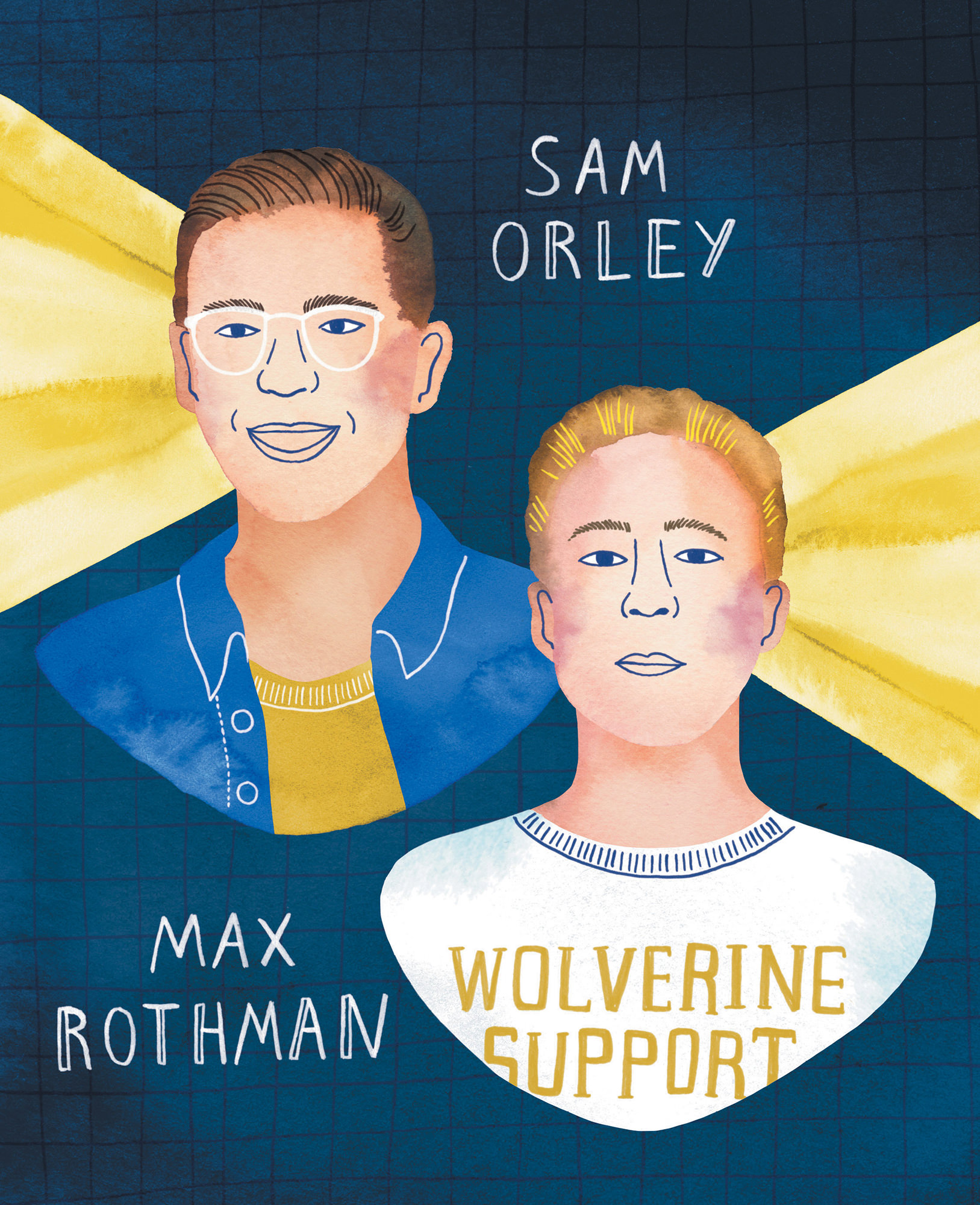
Born: 1997 Cause: Destigmatizing Mental Health on College Campuses
Vulnerability and empathy are contagious, and they start with us. —Max Rothman
One of the most impactful things you can do is open up to others about how you’re feeling. Not only does it ease your own burden, it also reduces stigma and gives others a chance to see their own burdnens as well. That’s because everyone experiences feelings of anxiety, sadness, depression, and inadequacy at some point or another. It’s part of being human. And sharing an experience is how we process it and move forward.
But opening up about those feelings is also one of the hardest things to do, thanks to the stigma of mental health issues. And that’s something that Sam Orley and Max Rothman have worked hard to change. They both know first-hand the benefits of asking for and receiving support.

As University of Michigan students, Sam and Max were both dealing with the pain of losing someone. Max had lost a friend to a tragic accident in middle school, and Sam lost his older brother to suicide just months before he started college. Although their losses were different, they both knew that they wanted to foster an environment of support on their college campus.
In the Wolverine Support Network, they found exactly what they were looking for: an organization that provided, as Sam says, a “refreshingly vulnerable, empathetic, and inclusive space accessible to all University of Michigan students to be themselves and talk openly and honestly.” WSN offered weekly meetings led by trained student facilitators as well as campus-wide events to help students blow off steam and build supportive relationships.
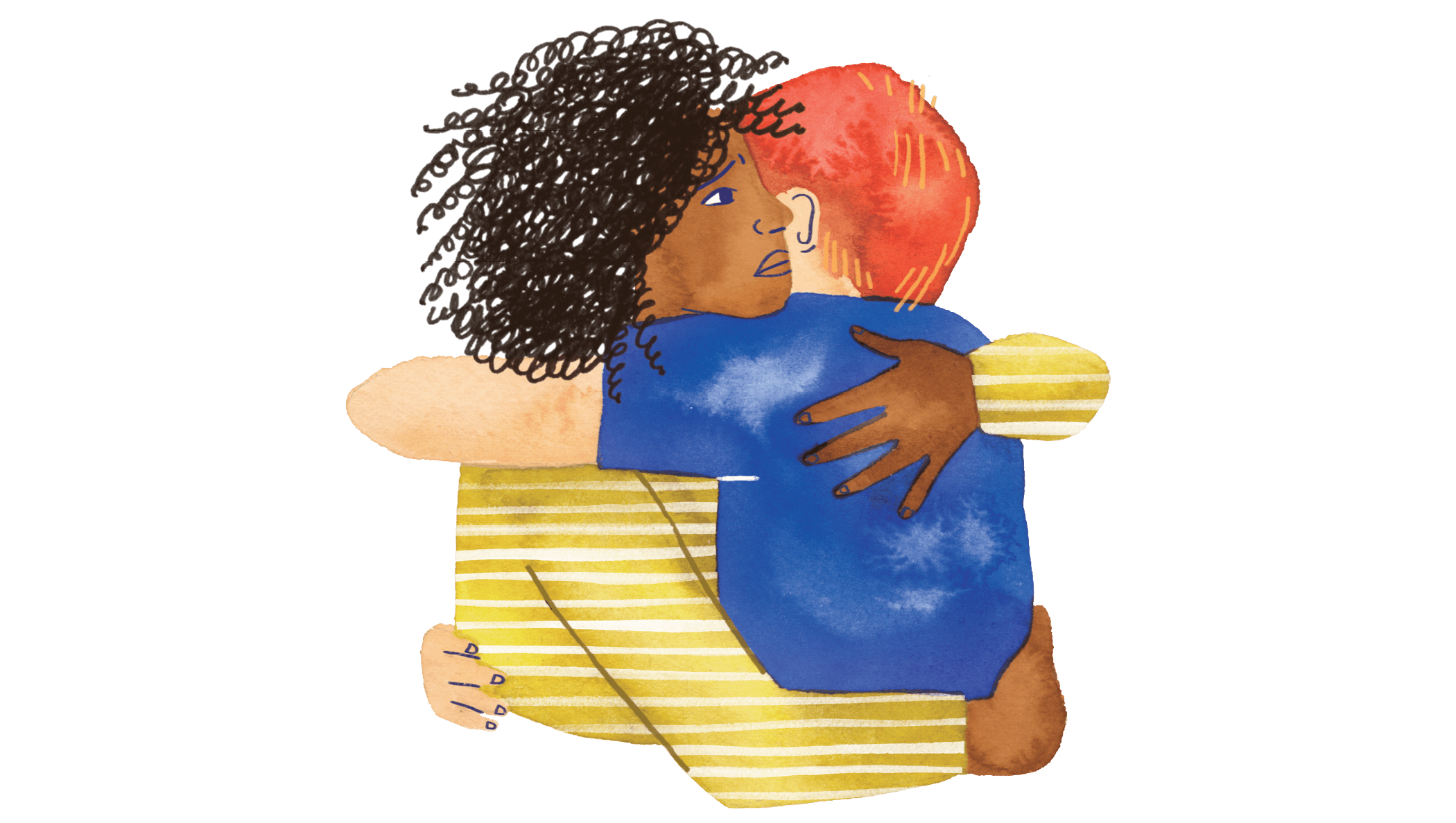
Sam and Max believed that having the support of peers, as opposed to staff or counselors, was particularly helpful. Although the group leaders had gone through rigorous training, they were also just college students. They could relate to everything that their peers were going through. As student Evelyn Wallace put it, “I’ve found a place on campus where people not only know my whole story but are looking out for me and empowering me to pursue what I really care about, while at the same time helping me feel appreciated even on the days when I have difficulty getting myself to class.”
Sam and Max recognized the importance of that feeling of peer support. For Max, it was the support he, himself, received after his friend’s accident. For Sam, it was the support he wished his brother had had. And both realized that students across the country could benefit from it. So, they set out to recreate WSN at high schools and college campuses across the nation.
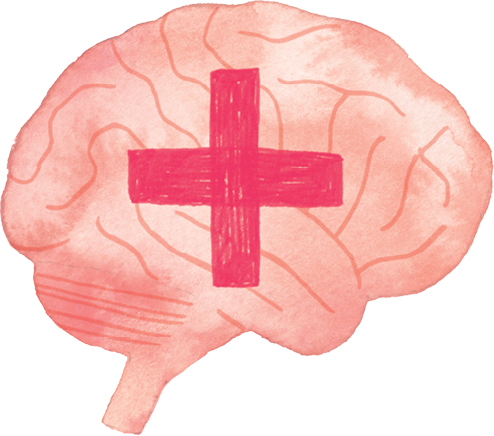 Together, they created The Support Network, which offers schools “the blueprint and advisory to launch an effective peer-to-peer support model with student leaders, working jointly with administrators.” They hope not only to provide all students with the support they need but also to start a national conversation about mental health and well-being. To that end, they’ve spoken at conferences and events to raise awareness for the program.
Together, they created The Support Network, which offers schools “the blueprint and advisory to launch an effective peer-to-peer support model with student leaders, working jointly with administrators.” They hope not only to provide all students with the support they need but also to start a national conversation about mental health and well-being. To that end, they’ve spoken at conferences and events to raise awareness for the program.
Sam and Max know that feeling comfortable talking about mental health needs to become the new normal. Not only would it alleviate the anxiety and stress that everyone experiences, it could also put an end to the feelings of helplessness and hopelessness that lead to suicide. Everyone, student or adult, needs to know that they aren’t alone, that there’s nothing wrong with them, and that help is there if they need it.
Follow Their Fight: @umichwsn and www.thesupportnetwork.org

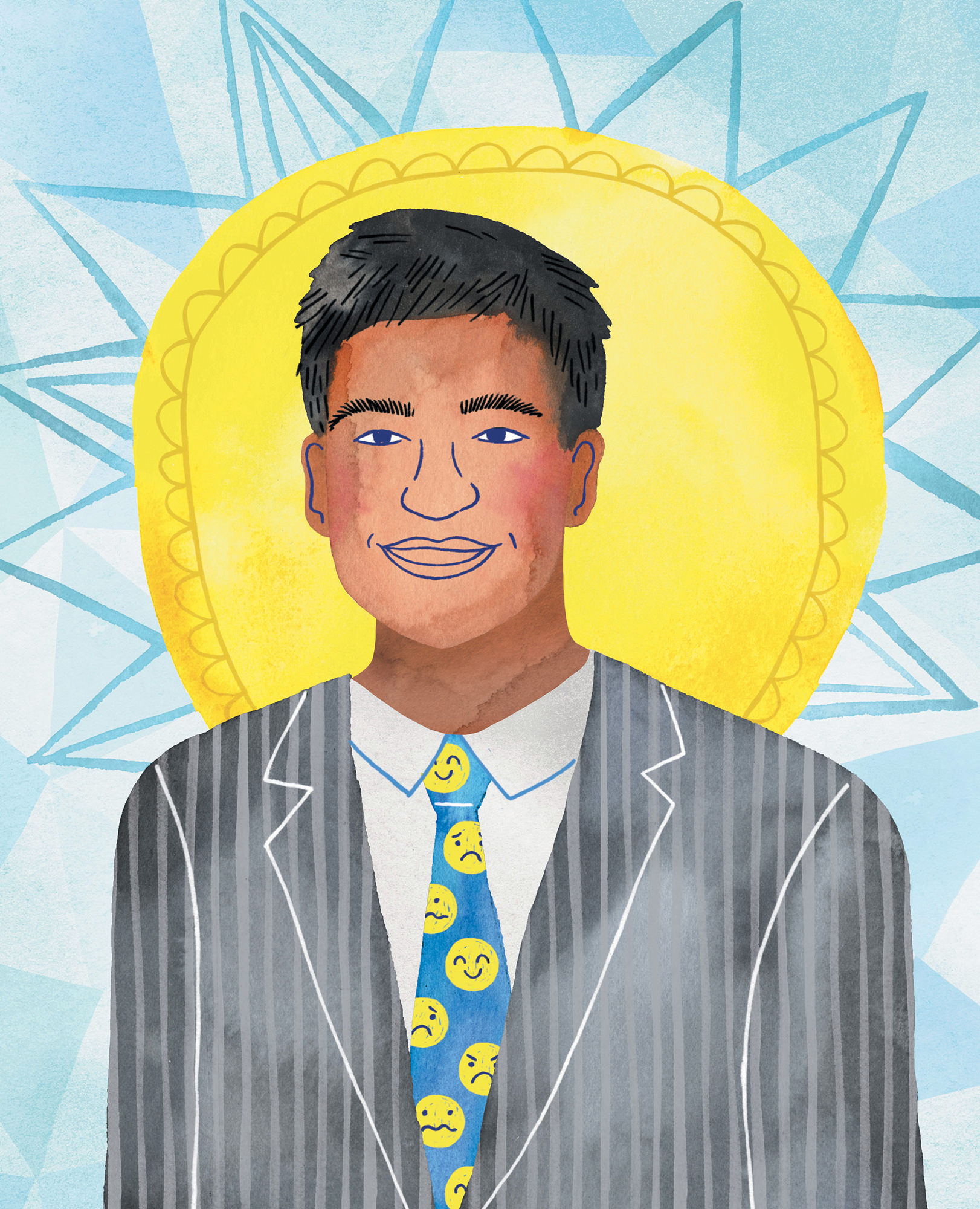
Born: 1998 Cause: Mental Health and Suicide Prevention
I’ve seen a lot of people battling with mental health problems, and I just want to make sure I’m doing my best to bring positivity into people’s life and encourage them to pay it forward. —Satvik Sethi
Have you ever been working on an assignment late at night and accidentally gone down an Internet rabbit hole? You know, when you start looking up the dogs of World War II for your history paper and end up watching video after video of huskies talking back to their owners? Before you know it, hours have gone by and you haven’t done anything productive. (We’ve all been there.) But one late night in 2014, Satvik Sethi’s rabbit hole took him in another direction—one he never expected. He went from looking up quotes on Instagram for an assignment to saving lives.
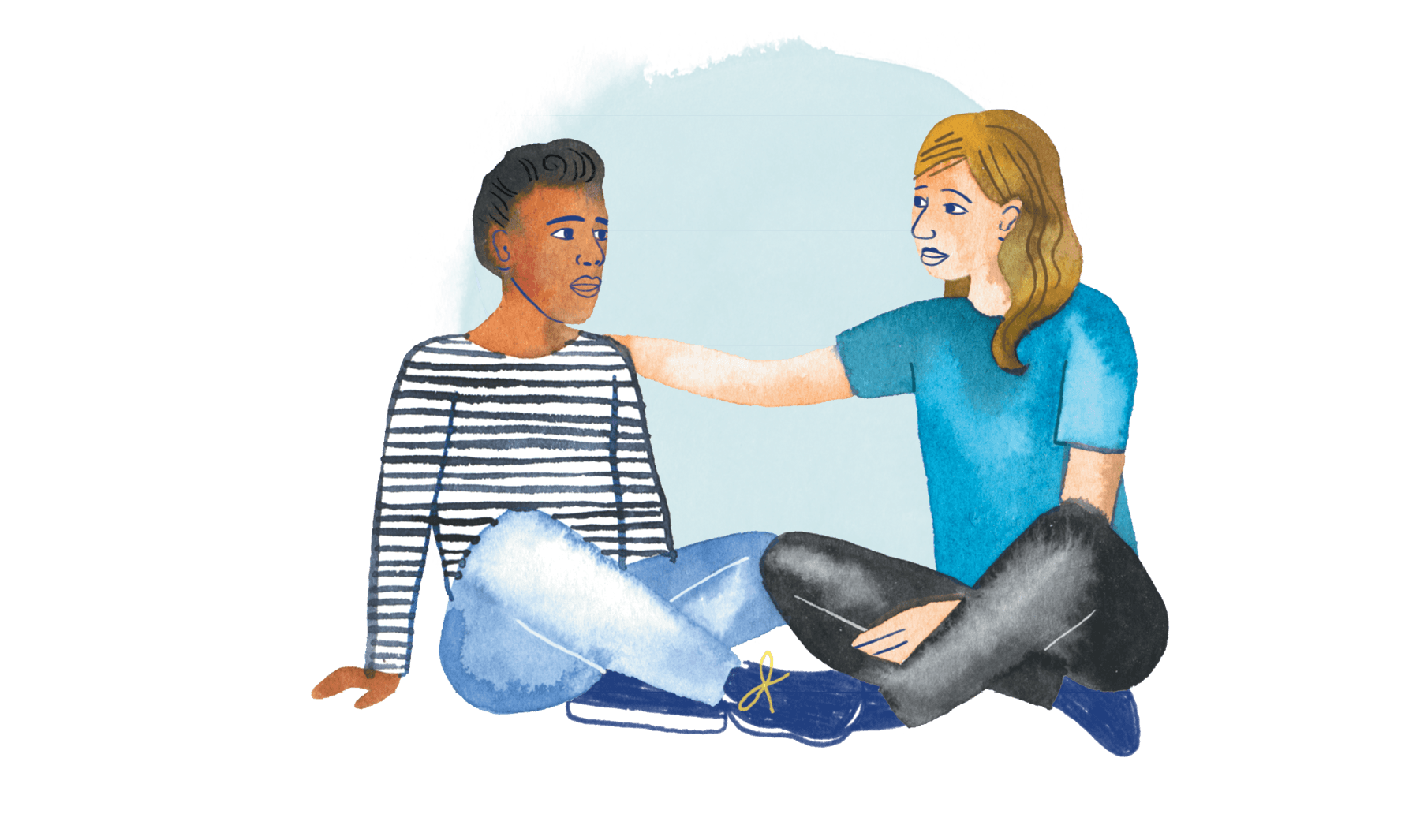
"If you see someone struggling, it doesn’t matter if they’re your friends or family, just put out a helping hand." -Satvik Sethi
Satvik lost one of his closest friends to suicide in ninth grade, the day he “first realized the devastating impact that mental health could have on someone.” So that night, when he was scrolling through Instagram and found an image of someone self-harming, he couldn’t move on. He had to help. “I immediately reached out to this stranger online and told them that if they needed someone to talk to, that I was there to listen—and just like that, they reached out to me and told me about their struggles. That night, I spoke to about six people and continued to talk to them until they felt better.”
After spending four hours being a sounding board for strangers that night, Satvik decided to make a habit of helping. He went looking for people who were struggling and offered to talk. One day, he realized that he had helped 150 people. And instead of feeling accomplished, he decided that he needed to do more.
Satvik began developing Runaway, a social entrepreneurial venture that he hopes will help people improve their mental health. It consists of a website full of positivity resources, events to increase mental health awareness and advocacy, and an app that will pair users with a chat bot or trained volunteers. (The app is still in development.)
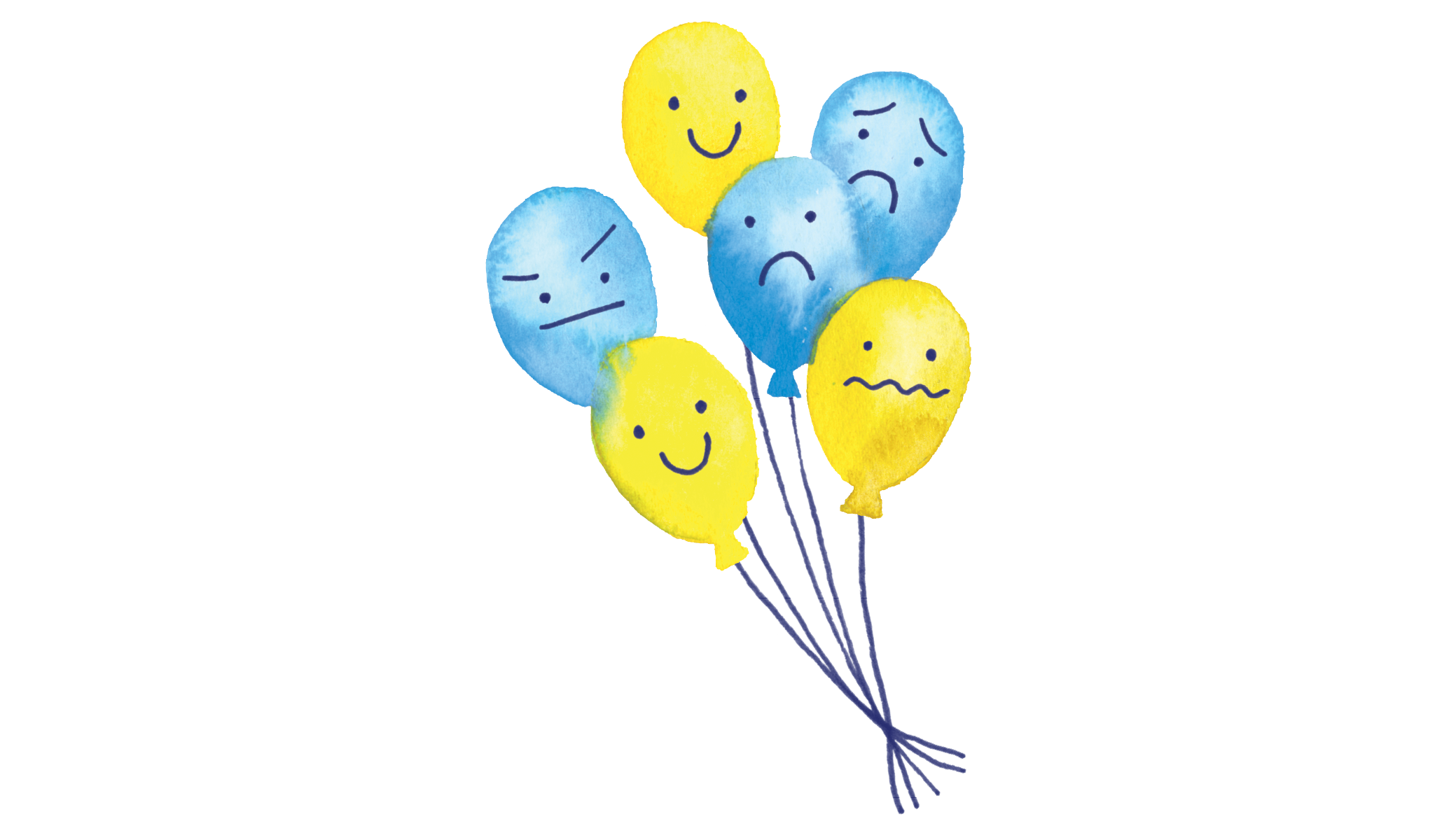
The venture is called Runaway because so many of the people Satvik spoke to said they wanted to run away, and he hopes that his program will be a safe place to run away to. Many of the strangers Satvik helped have become friends, and he’s been able to see the impact his kindness has had on them. “It’s great to see some of them become immensely successful at work—as writers, photographers, artists, and corporate executives, among other great jobs,” he says. “Some of them recently got into or graduated from prestigious colleges, and it’s an amazing feeling to see them do well, and to know you were there for them when they were so close to giving up.”
Through the platform and his own late-night chats, Satvik hopes that people remember this: Nothing is permanent. Even when it feels like the end of the world, you’re just getting started. “As long as you stay strong, and as long as you keep going, things will change, and they will change for the better. I promise you.”
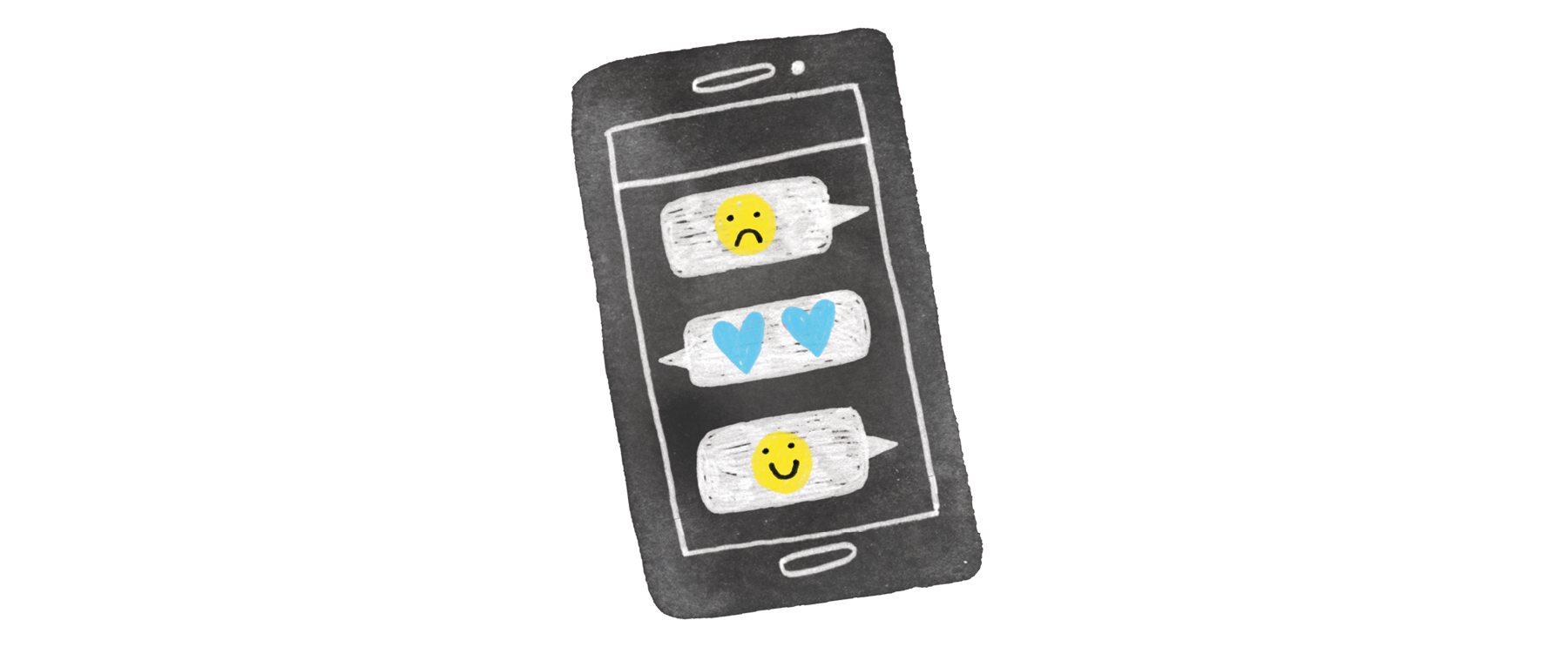
Follow His Fight:
@runaway.app on Instagram and @runaway_app on Twitter


Born: 2000 Cause: Plant-Based Nutrition for At-Risk Youth
When young people are fueled with food that is nourishing and energizing, they’re able to become their best selves. —Haile Thomas
When your family is running from work and school to soccer practice and choir rehearsal and a dozen other things, pizza or fast-food cheeseburgers sound like a great idea. Who has time to make a salad with all that going on? And be honest—you’d rather have the pizza anyway.
It’s not always easy to reach for the healthy options first, but bad eating habits are having a big impact on Americans and their health. Armed with some nutritional know-how, fixing that problem is within reach. Luckily, Haile Thomas has made it her mission to help.
Haile learned the power of proper nutrition when her father was diagnosed with type 2 diabetes. She was 8 years old and already a whiz in the kitchen, thanks to her mother’s lessons. But after the diagnosis, the whole family realized they needed to overhaul their diet and lifestyle. Those healthy changes helped Haile’s father reverse his disease.
If you don’t doubt yourself, then you don’t really leave room for others to doubt you. -Haile Hardcastle
This experience taught Haile that food is not only fuel but also medicine. By eating well and making healthy lifestyle choices, you can combat a number of health conditions, including obesity, heart disease, and—yes—diabetes. Haile was hooked.
The more she learned about food and nutrition, the more she yearned to share that information with others. So, at just 12 years old, Haile founded HAPPY (Healthy Active Positive Purposeful Youth) to educate at-risk kids about nutrition through cooking classes, summer camps, and in-school programs. “This peer-to-peer connection was super important to me,” she says. “I wanted to bring what I had learned into my community as a sort of low-cost nutrition education that’s fun and engaging and nutritious.”
You might think founding a nonprofit is enough, but Haile has even more achievements under her belt. In 2015, she became a nutrition science assistant at the Canyon Ranch Institute. In 2016, she partnered with the nonprofit organization Harlem Grown to provide education in urban farming, sustainability, and nutrition. In 2017, she graduated as the youngest Integrative Nutrition Health Coach from the Institute for Integrative Nutrition. And by spring of 2020, she’ll have published her own cookbook: Living Lively: 80 Plant-Based Recipes to Activate Your Power & Feed Your Potential. Haile won’t stop until she’s changed how the whole country feels about food!
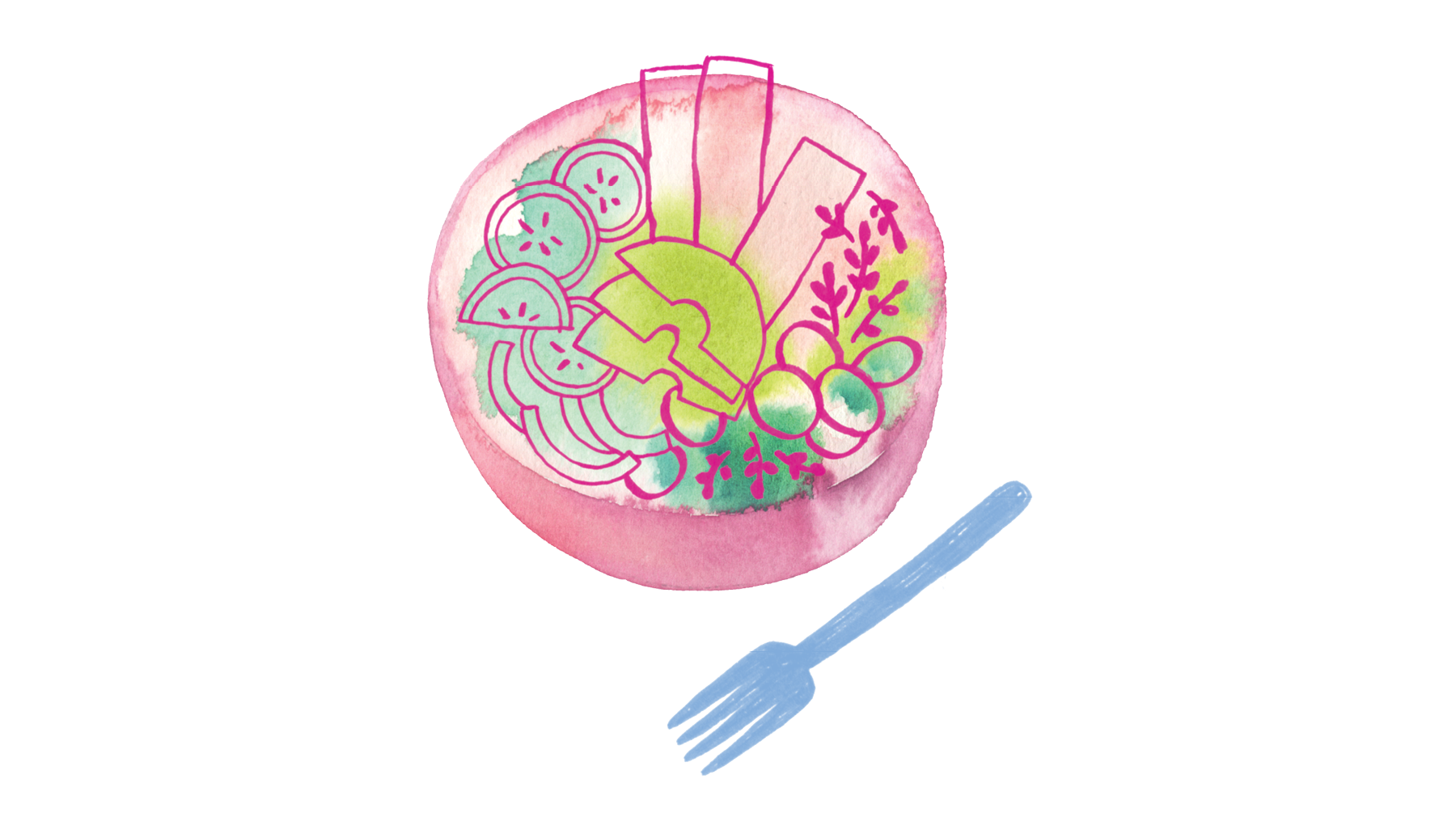
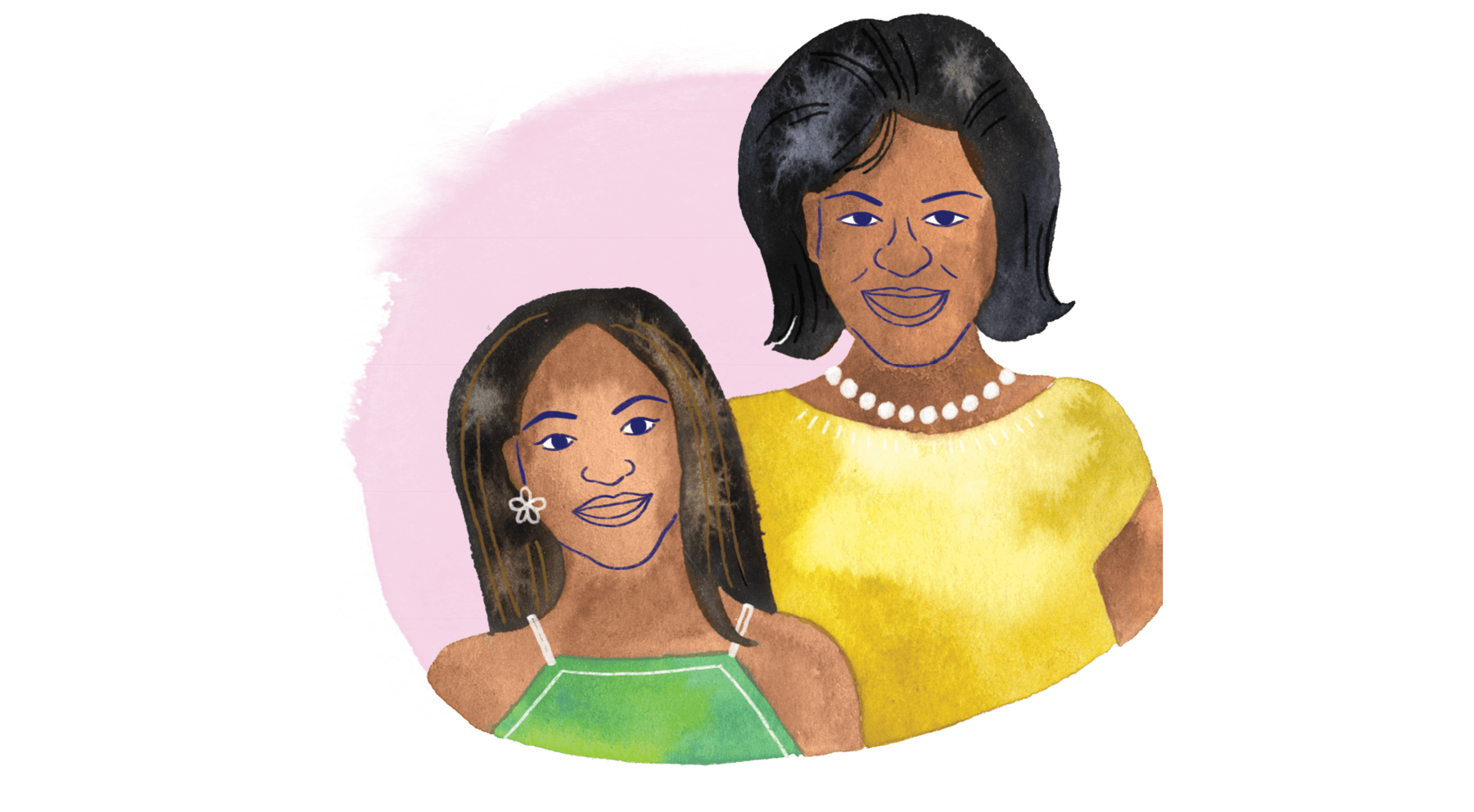

Follow Her Fight: @hailevthomas on Twitter, @hailethomas on Instagram, and @hailethomas1 on YouTube; and @thehappyorg on Twitter and Instagram
